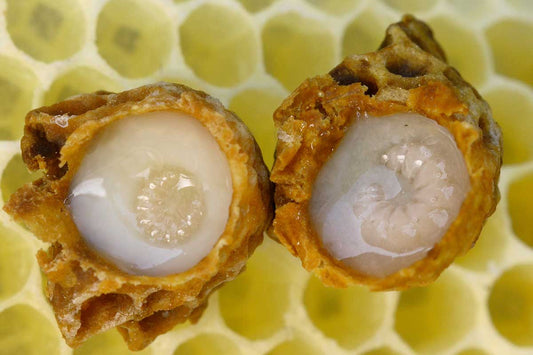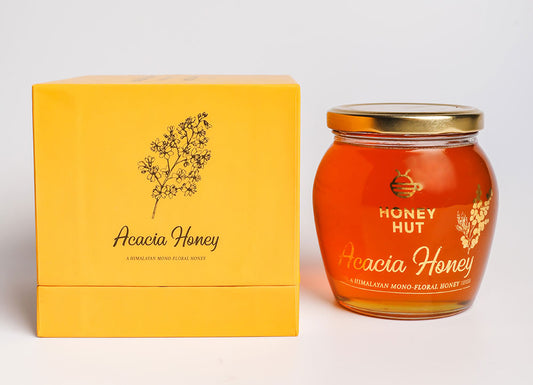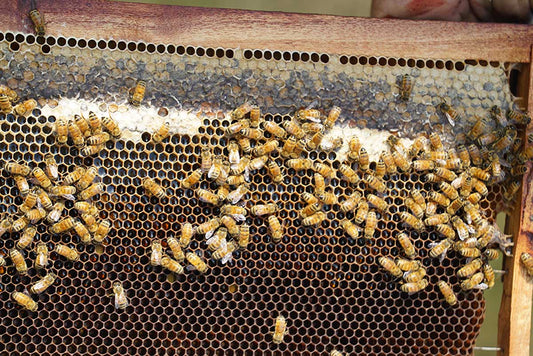“Honey and sugar are two common sweeteners used by people widely. While sugar is often criticized for its unhealthy ingredients and effects on the body, the question remains: is honey truly deserving of the hype it receives?”
In our pursuit for a healthier lifestyle, dietary choices play a pivotal role. Refined sugar, a common staple in many households, has been linked to various health concerns such as obesity, diabetes, and heart disease. The battle between sugar and healthier alternatives has never been more pronounced. As health-conscious individuals seek ways to refine their diets, the spotlight is turning towards natural substitutes, and “honey” emerges as a front runner in this sweet revolution.
Consuming refined sugars provides a rapid surge of energy, providing a temporary boost and offering a quick pick-me-up when feeling sluggish. However, this fleeting burst of energy is inevitably succeeded by a sugar crash as blood glucose levels sharply drop, resulting in a substantial dip in energy. Unlike honey, refined sugar poses a greater challenge for the body's processing mechanisms due to its lack of natural enzymes. When you consume refined sugars, such as those found in candies, sodas, or other processed foods, the simple sugars (glucose and fructose) are rapidly absorbed into the bloodstream. The absence of natural enzymes means that the body must exert more effort to metabolize sugar, relying on its internal enzymes. Consequently, the digestive system faces an increased burden, highlighting the potential strain associated with the consumption of refined sugars.
Let’s delve into the myriad reasons why making the switch from sugar to honey is a transformative step towards a healthier, more balanced lifestyle.

Understanding the Downside of Sugar:
Have you ever heard the phrase: “White sugar is empty calories?”
One of the primary drawbacks of sugar is that it provides what nutritionists often refer to as "empty calories." Unlike nutrient-dense foods that contribute essential vitamins and minerals to the diet, sugar adds calories without any accompanying nutritional value. This can lead to a diet that lacks the necessary nutrients for optimal health.
Weight Gain and Obesity:
Excessive sugar intake is a major contributor to weight gain and obesity. The body converts excess sugar into fat, leading to an accumulation of adipose tissue. Obesity, in turn, is associated with a higher risk of various health conditions, including diabetes, heart disease, and certain cancers.
Blood Sugar Spikes and Crashes:
Consuming foods high in refined sugars causes a rapid increase in blood sugar levels, leading to a surge in energy. However, this is often followed by a sudden drop in blood sugar levels, resulting in fatigue, irritability, and cravings for more sugary foods. This cycle can contribute to energy imbalances and affect overall mood and productivity.
Increased Risk of Heart Disease:
High sugar intake has been linked to an increased risk of heart disease. It can contribute to elevated blood pressure, inflammation, and abnormal lipid profiles, all of which are risk factors for cardiovascular problems.
Dental Problems:
Sugar is a major contributor to dental issues, including cavities and gum disease. Bacteria in the mouth thrive on sugar, producing acids that erode tooth enamel and lead to decay.
Addiction and Cravings:
Sugar has been shown to activate reward centres in the brain, leading to a cycle of addiction and cravings. This can make it challenging for individuals to reduce their sugar intake and adopt healthier eating habits.
Negative Impact on Mental Health:
Excessive sugar intake has been linked to an increased risk of depression and cognitive decline. These fluctuations can contribute to mood swings, irritability, and feelings of fatigue, affecting overall emotional well-being. It might also include issues such as poor memory, decreased attention span, and difficulties with learning and problem-solving.

Alternatives to Refined Sugar:
Acacia honey: Acacia honey is known for low glycemic index, meaning it doesn't cause a rapid spike in blood sugar levels like other sweeteners. This makes it a great alternative for those with diabetes or anyone looking to maintain stable blood sugar levels.
Maple Syrup: Maple syrup, derived from the sap of sugar maple trees, is a natural sweetener with a unique flavor profile. It contains antioxidants and small amounts of minerals like zinc and manganese. Use it as a topping for pancakes, waffles, or as a sweetener in baking and cooking.
Coconut Sugar: Coconut sugar, made from the sap of coconut palms, has a rich caramel-like flavor. It contains small amounts of vitamins, minerals, and antioxidants. Use it in a 1:1 ratio as a substitute for granulated sugar in recipes.
Date Sugar: Made from dried, ground dates, date sugar retains some fibre and nutrients found in whole dates. It has a natural sweetness and can be used as a 1:1 replacement for sugar in baking.
Molasses: Molasses is a by-product of the sugar refining process, and while it is derived from sugar, it contains more nutrients. Blackstrap molasses, in particular, is a good source of iron, calcium, and potassium. It has a strong flavor and is often used in baking and cooking.
The decision to replace sugar with honey is more than a culinary choice; it's a holistic commitment to health and well-being. The nutritional richness, lower glycemic index, and various health benefits of honey are a standout alternative. The avoidance of the notorious "sugar crashes" and the sustained energy provided by honey can positively impact your daily energy levels and mood. As you embark on this sweet revolution, let honey be the golden elixir that not only satisfies your sweet tooth but elevates your overall health, making each indulgence a step towards a more vibrant and balanced lifestyle.








